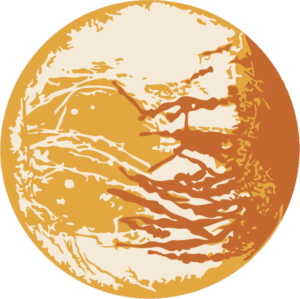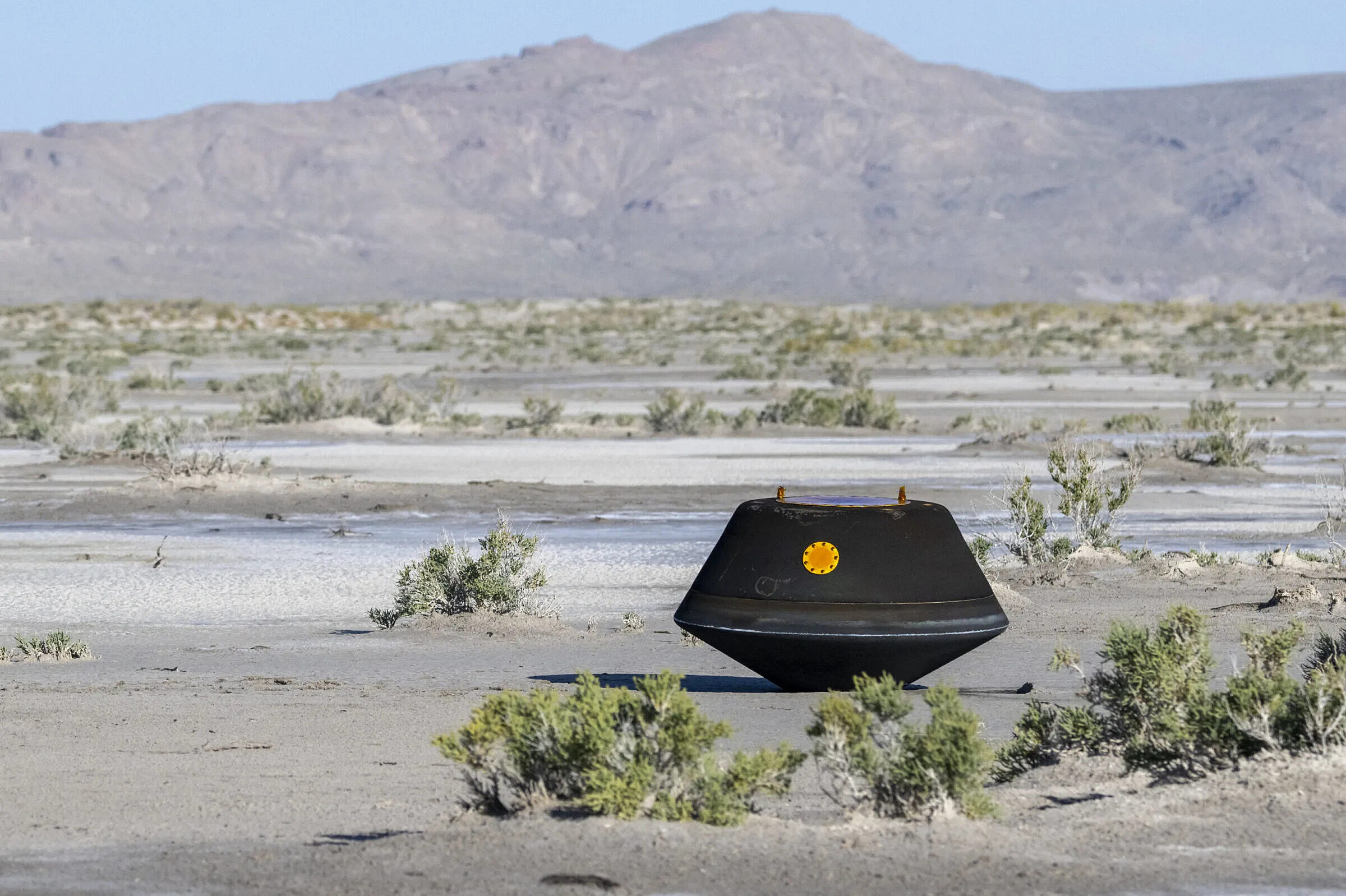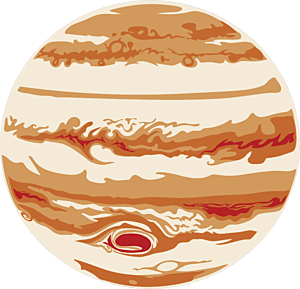The Downlink • Dec 06, 2024
Best in show
Space Snapshot

The results are in! Throughout November, people around the world voted for their favorite images, missions, exploration moments, and more from the last year in space. The winners include this image of the Odysseus lunar lander on its way to the Moon, which was voted “Best space exploration image.”
Fact Worth Sharing

Europa Clipper was a big winner in the Best of 2024 awards, and will likely show up again in next year’s voting list. On its way to Jupiter, Europa Clipper is due to perform a flyby of Mars on March 1, 2025, passing just a few hundred kilometers above the planet’s surface.
Mission Briefings


A new mission will create an artificial solar eclipse in space. ESA’s Proba-3 mission launched today, beginning its mission to study the Sun’s corona. Proba-3 is a novel kind of mission in which a pair of spacecraft will fly in precise formation to create an artificial eclipse, lining up perfectly with the Sun so that one spacecraft’s shadow is cast on the other. This will allow the trailing spacecraft to study the Sun’s corona. Pictured: An artist’s impression of the mission. Image credit: ESA.

Venus may not have had a watery past after all. New research from the University of Cambridge suggests that Venus’ interior is too dry today for oceans to have ever existed on its surface. If confirmed, this would mean that Venus has been a dry, inhospitable planet throughout its history instead of having had a period in which life on the surface could have been possible.

NASA has provided more insight into its decision to cancel VIPER. In response to a request from Congress, NASA explained that, according to their calculations, launching VIPER in September 2025 as planned would have resulted in the cancellation of up to four commercial lunar lander missions and the delay of up to four more.

VERITAS is back on track, but another potential delay looms. The NASA mission to Venus was delayed by three years in 2023 because of workforce issues at the Jet Propulsion Laboratory, and work on the mission was paused in fiscal year 2024. Although the VERITAS team is now working on the mission again, they are concerned that NASA may seek to further delay the launch from 2031 to 2032.

Carol (Cari) Sagan Greene, Carl Sagan’s sister, recently passed away. Cari was a social worker, a dedicated volunteer, a leader in her community, and a great friend to The Planetary Society. She donated bone marrow three times to prolong Carl’s life when he was battling myelodysplastic syndrome, showing astonishing dedication to her brother.

Jared Isaacman will be the next NASA administrator. President-elect Donald Trump announced this week that Jared Isaacman, a billionaire who has commanded two SpaceX commercial spaceflights, is his nomination. Planetary Society Chief of Space Policy Casey Dreier has provided an early analysis of this choice and what it could mean for space exploration.
From The Planetary Society


Looking back on 100 weeks of space exploration. Planetary Radio Host Sarah Al-Ahmed marked her 100th episode this week with a look back at the defining moments of the past 100 weeks of space exploration, revisiting interviews with the people behind the missions that have defined the last two years. Pictured: The capsule containing the sample that NASA's OSIRIS-REx mission returned from the asteroid Bennu in September 2023, one of the moments highlighted in this episode. Image credit: NASA/Keegan Barber.

Learn about stargazing from an astrophysicist. The Planetary Society’s Science Editor Asa Stahl is the host of our new, members-only online course, Stargazing 101. He also happens to be an astrophysicist. He joined host Mat Kaplan in the latest edition of Planetary People to talk about his path from research to sharing the wonders of science and the sky. Watch the video recording here.

Looking for space-themed gifts? Check out our Space Bazaar. The Planetary Society’s member community has its own little marketplace for space-themed goods, all from our creative members. Check out what’s for sale in the Space Bazaar today. If you’re a seller, you can submit your listings once a month. The Space Bazaar is only available to Planetary Society members, so if you aren’t already a member, join today! For even more gift ideas, check out our 2024 holiday gift guide.

Announcing the December book club pick! This month, Planetary Society book club members will be reading “Project Solar Sail,” an anthology of stories, essays, and illustrations exploring the topic of solar sailing. Included among the selections is an article from Planetary Society Chief Scientist Bruce Betts about our LightSail program. At our December book club meeting, Planetary Society members will chat with science fiction author, futurist, astrophysicist, and Planetary Society Advisory Council member David Brin, who is one of the editors of the anthology.
Expand our future in space!

Any gift to our year-end campaign powers The Planetary Society's mission to explore worlds, find life, and defend Earth. Plus, thanks to a generous Society member, any gift made now through the end of the year will be matched up to $100,000. Make your year-end gift today!
What's Up

In the early evening, look for super bright Venus in the west and Saturn high in the east, joined by the Moon on Dec. 8. Jupiter is at opposition (the opposite side of Earth from the Sun) on Dec. 7, meaning that it rises at sunset and sets at sunrise and shines brighter than other times. Reddish Mars rises in the east later in the evening. Learn more about what to see in December’s night skies.
Join now and save space missions

If you are not already a member, become one TODAY and help shape the future of space science and exploration by fueling mission-critical advocacy efforts. Here’s just one example: The Planetary Society led efforts in Washington to re-establish funding for NASA’s Venus orbiter VERITAS — and we won! This was only possible because of the support of our members. VERITAS will produce the first global, high-resolution topographic and radar images of Venus, revealing the secrets of Earth's twin planet.
Will you join their ranks and help more missions reach the finish line?
Wow of the Week

Earth has seven quasi-moons, asteroids that look like they orbit Earth but actually orbit the Sun on almost the exact same path as Earth’s orbit. One of them, currently named (164207) 2004 GU9, is about to get a new name — and you can help choose it. Through the “Name a Quasi-Moon contest,” a panel of experts, including Planetary Society CEO Bill Nye and Planetary Radio Host Sarah Al-Ahmed, picked seven finalists from among nearly 3,000 names submitted by people in more than 90 countries. Now, the public is invited to choose their favorites from among those finalists. You can cast your vote from now until Jan. 1, 2025. Image credit: IAU/Radiolab.
Send us your artwork!
We love to feature space artwork in the Downlink. If you create any kind of space-related art, we invite you to send it to us by replying to any Downlink email or writing to [email protected]. Please let us know in your email if you’re a Planetary Society member!


 Explore Worlds
Explore Worlds Find Life
Find Life Defend Earth
Defend Earth

